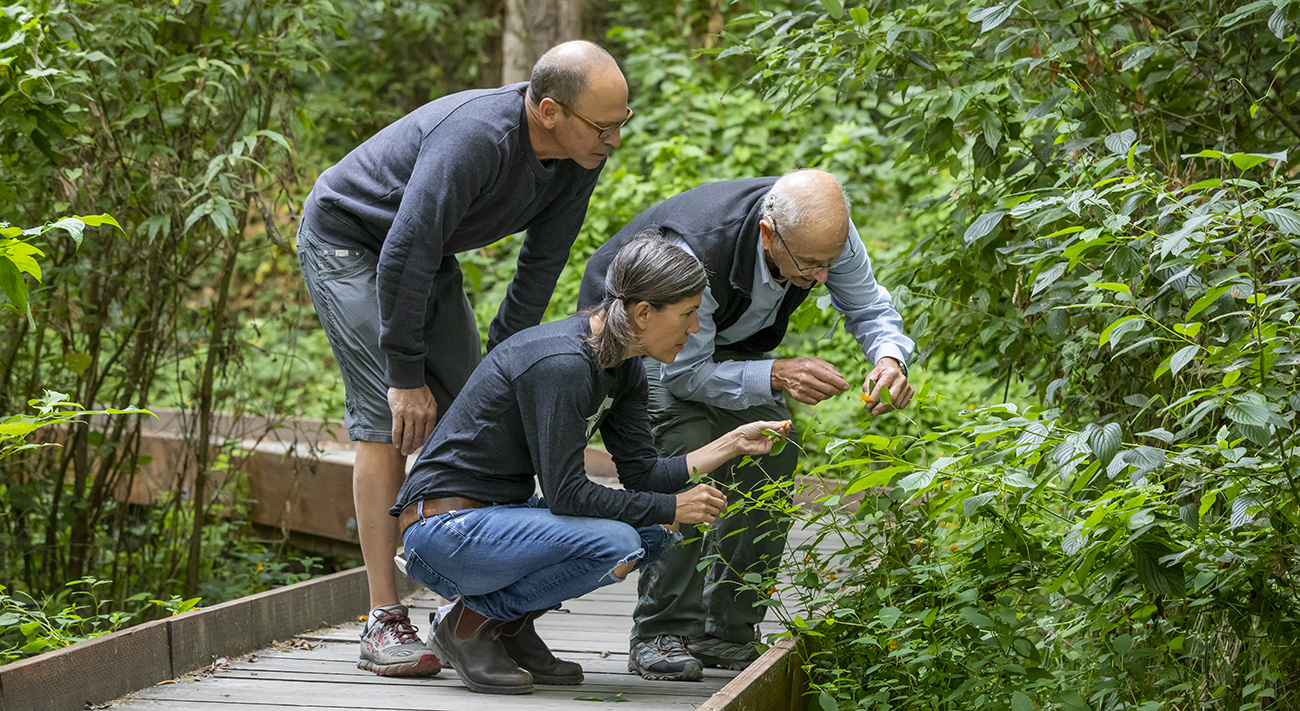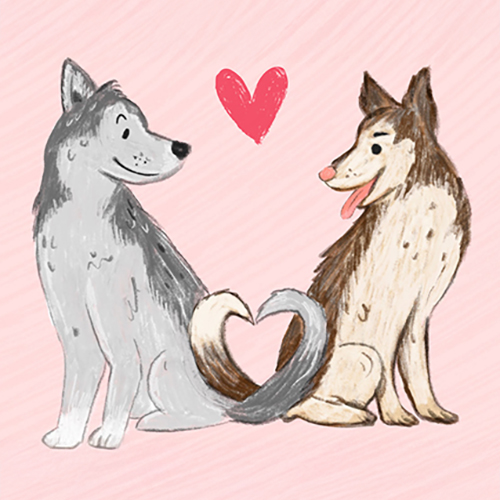As co-chairs of the UW’s Be Boundless campaign, Jodi Green and Mike Halperin (’85, ’90) knew they wanted to make a major gift to the University. With ties to so many programs across campus, the challenge was choosing where to direct their gift. They decided to establish an endowed professorship in the Department of Biology in honor of Mike’s father, Walt Halperin, professor emeritus of biology. Below they discuss the gift, the department, and being inspired by a botanist.
How did your gift — the Walt Halperin Endowed Professorship in Biology — come about?
Jodi: We wanted to do something significant for the campaign that would have a long-lasting and sustainable impact. It was my idea to honor Walt, a brilliant man who dedicated his professional life to the University. Of course Mike was 100 percent on board with the idea.
Mike: We have tremendous respect for all that my father accomplished at this remarkable institution. There seemed no better way to honor his legacy than to allow successive generations of outstanding scholars and superlative talents to follow in a position that bears his name.

Why an endowed professorship?
Jodi: We understand the importance of unrestricted dollars in recruiting star faculty and retaining outstanding existing faculty. Endowed positions are an important tool in competing with our peer academic institutions for today’s greatest minds, because they provide the ultimate in academic flexibility. They can be used for research expenses — buying instruments, traveling to conferences, supporting graduate or undergraduate researchers — as well as a myriad of other applications that create a stronger and smarter academic enterprise.
Mike: On a very personal level, this is a meaningful and emotionally wonderful way to keep my father connected to the department that he loves so much.
... this is a meaningful and emotionally wonderful way to keep my father connected to the department that he loves so much.
Your father spent more than three decades at the University. Did you visit his research lab as a child?
Mike: I did. Probably my favorite memory was the way that he set up camp in his lab. He had an old green army cot and a sleeping bag. He would spend many nights there, getting up all night long to do measurements and be able to tend to his experiments. His passionate commitment to his work left a lasting impression on me.
I also remember that one of his colleagues kept a giant iguana in his lab and was renowned for always having a tray of donuts and maple bars in his lab for his graduate students. There was a little bit of a joke between me and my father where I would ask him, “Hey, can we go visit the iguana?” Of course that really meant I wanted a donut!
My father was incredibly enthusiastic about the graduate students and postdocs in his lab. A goodly number of them actually lived in our basement for the period of time that they were doing work at the UW. We hosted some wonderful graduate students from all over the world who became lifelong friends of the family. Being exposed to them really broadened my view of academics and the socio-cultural milieu within the sciences generally.

Was it a given that you would study science as well?
Mike: I went off to college planning to be an actor or a writer. I did that for two years — I met Jodi during that time — but one day I woke up and decided that I needed to be a scientist. I attribute this in no small part to the incredible respect that I have for my father. I returned to Seattle to study at the UW, and Jodi moved here a few years later. She developed a lifelong passion for botany through her relationship with my father.
Jodi: That’s true. During college I spent a summer in Seattle to be with Mike, and his parents took me hiking for the first time. Walt was constantly stopping to point out plants and flowers and explaining how to identify them. After I moved to Washington, I sometimes joined him on field trips to look for specimens for his classes — plants you could only find on some hiking trail. So my interest in botany happened organically, one hike at a time.
Mike: To this day, whenever we are outdoors, my father and Jodi maintain an ongoing banter about the plants around them, including the plant family, genus, and species. It’s kind of like they’re speaking fluent Latin together.

Mike, your undergraduate degree is from UW Biology. How was your experience as a student?
Mike: I absolutely loved being a biology student. A highlight was a mammalogy course taught by Professor Kenagy, in which we did field trips to Eastern Washington. On those trips we trapped all kinds of fascinating little critters, including several rodents that I took home as pets. Much to Jodi’s chagrin, she had to share quarters for quite a while with Dipodomys ordii, a very amusing little kangaroo rat that I kept in my bedroom.
Jodi: I grew up in Brooklyn, New York. When we see mice and rats in Brooklyn, we are not talking about pets!
Any thoughts on how the Department of Biology has changed over time?
Mike: It has been Jodi’s deep UW involvement that has brought me back full circle to UW Biology. Since my graduation, I have watched the department grow rapidly and attract stunningly talented biologists. The depth and breadth of science that goes on there, from organismal biology to population ecology to genetics, blows my mind. It’s an incredibly collaborative department with remarkable leadership in people like Tom Daniel and Toby Bradshaw. When they go out for a new hire, they’re not looking for a person who studies a particular area; rather they are bringing in the best talent they can find, with the most burning curiosity and the highest ability to achieve. This approach to recruiting and hiring has led to a biology faculty that is second to none.
Jodi: It’s been wonderful for both of us to know we’re supporting the important work happening in Biology. We feel really fortunate to be a part of the department’s maturation into the global powerhouse it is today.
More Stories

Finding Love at the UW
They met and fell in love as UW students. Here, 10 alumni couples share how they met, their favorite spots on campus, and what the UW still means to them.

AI in the Classroom? For Faculty, It's Complicated
Three College of Arts & Sciences professors discuss the impact of AI on their teaching and on student learning. The consensus? It’s complicated.

Bringing Music to Life Through Audio Engineering
UW School of Music alum Andrea Roberts, an audio engineer, has worked with recording artists in a wide range of genres — including Beyoncé.